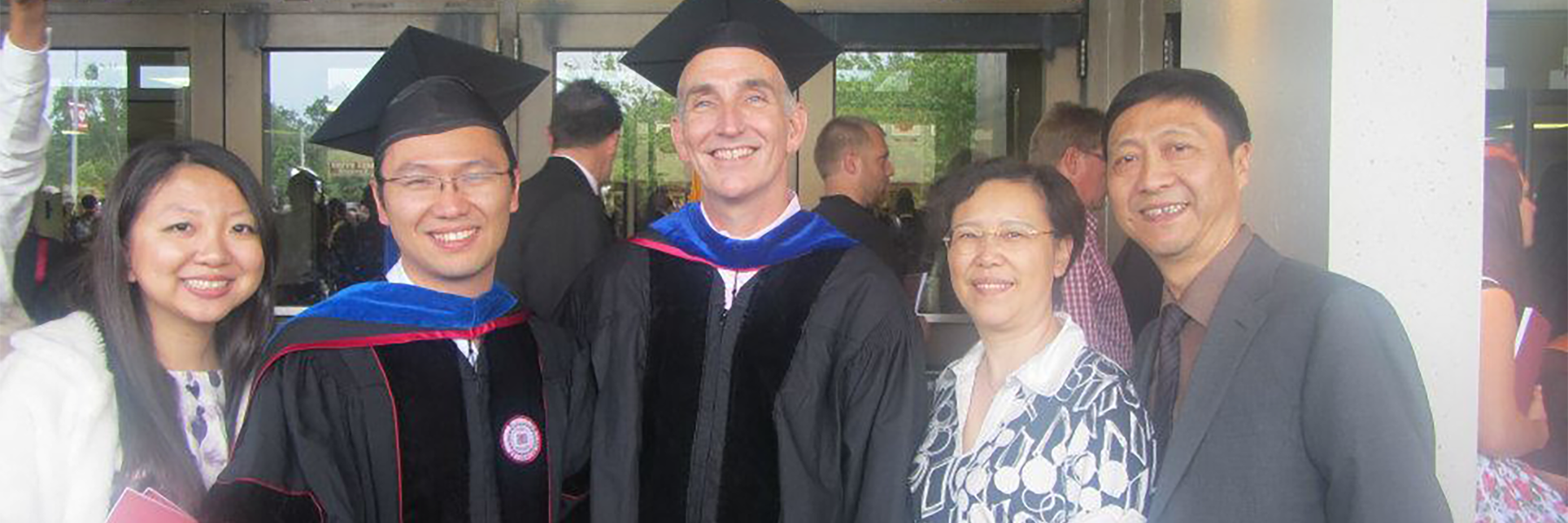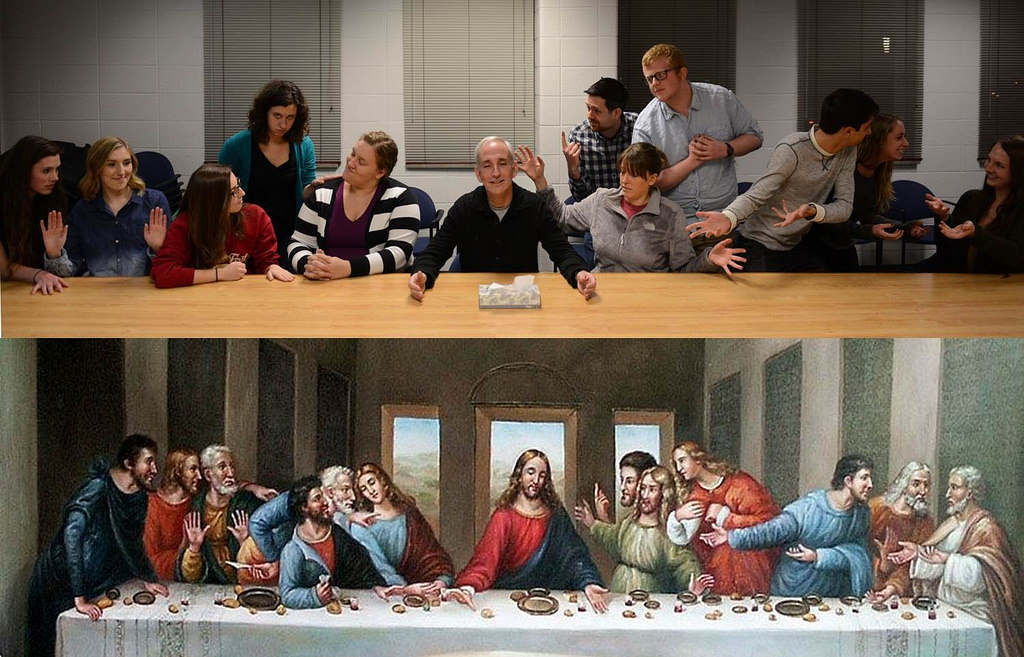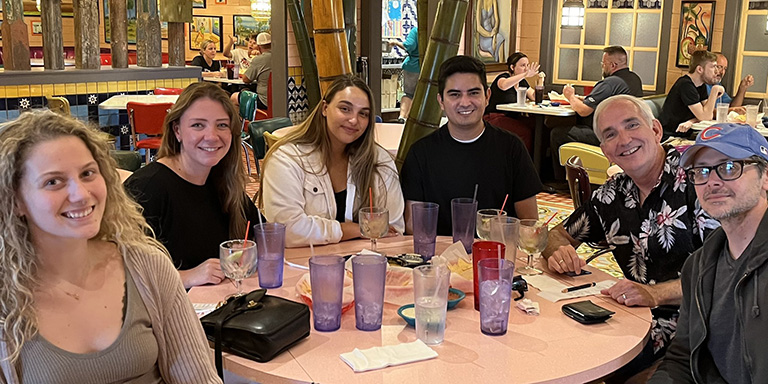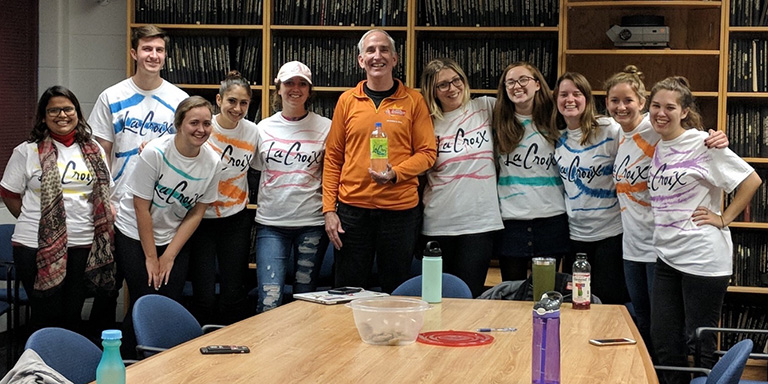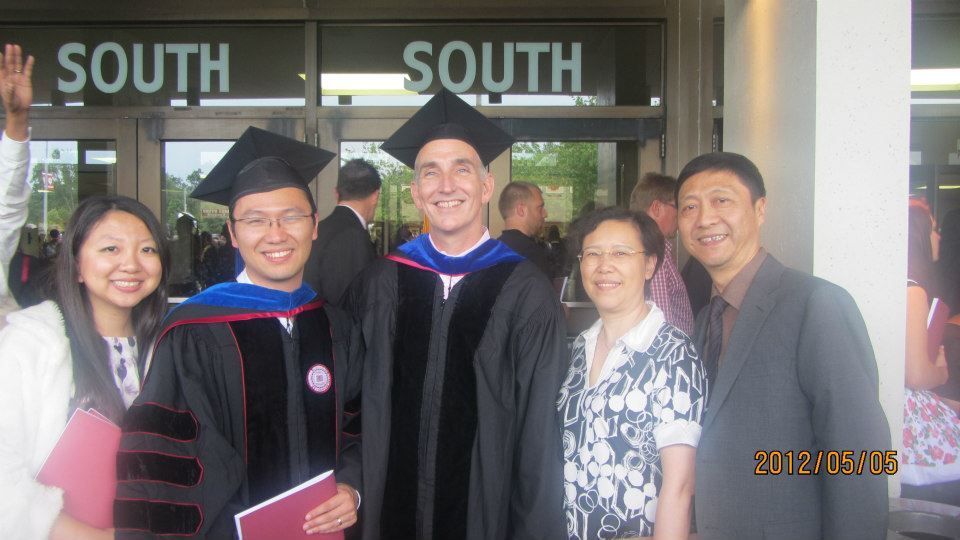After stints at Pennsylvania State University and University of Wisconsin-Madison, Ed joined the IU faculty in 1991. “While it was a bit weird to come back to your alma mater as a faculty member after having been a student there, I knew IU was where I wanted to be,” Ed said. “And I have been here ever since.”
His work in the HirtLab explores social psychological concepts like motivation, judgment processes, mental depletion, free will, self-handicapping, fan behavior, and social identities. He teaches undergraduate and graduate courses on social psychology, consumer psychology, social perception, and judgment/decision making, along with mentoring graduate students and research assistants in his lab.
Ed has been involved with multiple psychological associations throughout his career, serving as president of the Midwestern Psychological Association and as an executive committee member of the Society of Experimental Social Psychology and Society for Personality and Social Psychology. He has also served as an editor of numerous psychology journals.
Throughout your education and career, how did you discover your passion for social psychology in particular?
At University of Dayton, I became a psychology major, thinking that I wanted to be a therapist. After taking a course entitled Interviewing and Counseling, I soon realized that it was not for me. I took a course in social psychology and found it fascinating. The instructor for that course, Dr. Charlie Kimble, was doing a research study and needed research assistants to serve as confederates. I volunteered to work in his lab and was completely smitten! I loved the opportunity to be a part of that study and got involved in other studies going on in his lab. Later on, Dr. Kimble gave me the chance to develop an independent study of my own, and I have never looked back. I owe my career to Dr. Kimble and continued to work with him throughout graduate school and beyond.
What aspects of social psychology interest you the most?
I think what I like most about social psychology is its relevance to everyday life. Teaching social psychology is easy, because we are all social psychologists at heart, trying to understand the world and people around us. Being able to contribute to the scientific investigation of questions that have real-world significance and tackle real-world problems has been very fulfilling for me.
You’ve studied the psychology behind fan behavior and provided your input to organizations like ESPN and the New York Times. How do you see your research apply to fans of IU sports, and why do they mean so much to the community?
One of the topics that has been of longstanding interest for me has been fan behavior. When I first went to graduate school, I went to Arizona State University to work with Dr. Robert Cialdini, who was famous for his work on a phenomenon known as "basking in reflected glory" (BIRGing). Simply put, it says that people often raise their esteem in others' eyes by pointing to their association with successful others. A great example of this is sports fans of winning teams, who proudly display their allegiance to their team ("we are #1"). As a sports fan, I was fascinated by the idea of basking in reflected glory and have devoted a good amount of my research attention toward understanding why fanship plays such an important role in our social identities.
For many people, their allegiance to their favorite sports teams serves as one of the most important and significant aspects of their identities. Our research has shown that not only can it be used as a way of indirectly boosting our self-esteem when our team wins (as the concept of basking in reflected glory has illustrated), but it also serves as a means to connect us to other likeminded individuals who share our passion for our team. That connection is maintained whether our team wins or loses and serves an avenue to share common experiences (both live games and memories of past teams/games) that bind us together. I often equate the kind of connections that fellow sports fans feel with each other with the kinds of bonds veterans experience with others who have served in the same branch of the military or that people feel with others who attend their same church or share their same religious affiliation. It is a uniquely powerful bond.
Are there any misconceptions about psychology you often come across? What do you wish people knew about your work?
Well, telling someone you meet for the first time (on a plane or in a waiting room) that you are psychologist almost inevitably elicits the response of, "Are you analyzing me?" So, I think it is always important to educate people that psychologists are not all counselors or therapists. Telling them that I am a scientist who studies what motivates people to work hard or how people make decisions serves as a much better conversation starter than the term psychologist.
One of the challenges that I find with science and social psychology in particular is that we cannot talk in terms of absolutes. People are complex, and everybody does not act the same way in situations they face. One place where that has been very challenging is when I have been asked to serve as an expert witness in a trial. There are many cases in which scientific evidence from social psychology is very helpful and instructive to a judge or a jury. But a defense lawyer can always come back and say, "Can you say with absolute certainty that this person will respond this way in this situation?" And my answer always has to be "no." I want to say that we can be pretty confident that most individuals in that situation will act this way, but I am forced to admit that I cannot be sure that this particular individual will necessarily act this way. That is frustrating, but at the same time important to acknowledge. Still, I think we have learned some very important lessons from social psychology over the years that has informed interventions and policy changes that have made life better for many.
Do you have any favorite spots on campus?
Given the location of the Psychology building on campus, I am a big fan of the Arboretum, which is located right outside of my window. I also have a lot of fondness for Beck Chapel as well, since three dear friends have been married there. The IU Auditorium and Cinema are treasures that I enjoy as well.
Personally, I think IU has one of the most beautiful campuses around. Whenever we have friends visit us from other universities, they say the same thing. The amount of green space we have makes it so gorgeous to walk around on nice sunny days. I make it a habit to walk my dog around the campus on a regular basis and try not to take it for granted. There are people in social psychology beginning to study how much appreciation of nature and the more general experience of awe benefits people's mental health and outlook, as well as encourages prosocial behavior. I think we can all gain a little bit more perspective on life by taking the time to enjoy nature and awe-inspiring events like the recent solar eclipse.


